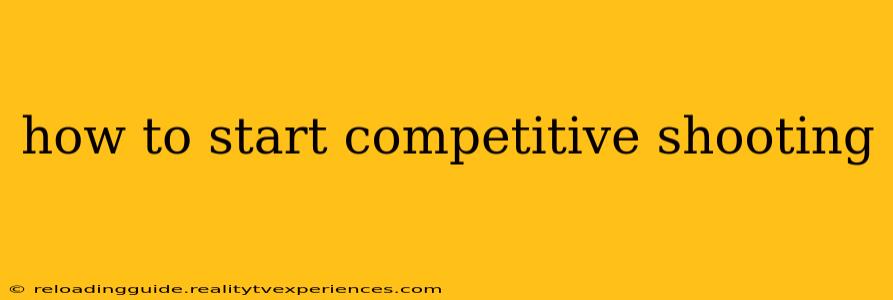Competitive shooting, encompassing disciplines like pistol, rifle, and shotgun, offers a thrilling blend of precision, skill, and mental fortitude. Whether you're drawn to the adrenaline rush of dynamic events or the meticulous focus of precision shooting, this guide provides a comprehensive roadmap to get you started.
1. Choosing Your Discipline: Finding Your Niche
The world of competitive shooting is diverse. Before diving in, consider which discipline aligns with your interests and physical capabilities:
Popular Disciplines:
-
Pistol Shooting: This encompasses various formats, including:
- Bullseye: Focuses on extreme accuracy at specific distances.
- Action Pistol: Fast-paced, dynamic shooting involving movement and target acquisition under pressure. (e.g., USPSA, IPSC)
- Precision Pistol: Emphasizes accuracy and control at longer ranges.
-
Rifle Shooting: Options include:
- Three-Position Rifle: Shooting from prone, standing, and kneeling positions, demanding exceptional control and stability.
- High-Power Rifle: Similar to three-position, but often at longer distances.
- Precision Rifle: Focuses on long-range accuracy and shot placement.
-
Shotgun Shooting: This includes:
- Sporting Clays: Simulates various hunting scenarios, requiring quick target acquisition and smooth transitions.
- Skeet: Shooting clay targets launched from fixed positions.
- Trap: Shooting clay targets launched from a single trap house.
2. Essential Gear: Investing in Safety and Performance
Starting out doesn't require top-of-the-line equipment, but investing in safe and functional gear is crucial:
Safety First:
- Eye and Ear Protection: This is non-negotiable. High-quality eye and ear protection are paramount for safety.
- Proper Clothing: Avoid loose clothing that could get caught in the firearm. Closed-toe shoes are recommended.
Firearm Selection:
- Start with a Rental: Many shooting ranges rent firearms, allowing you to try different types before committing to a purchase.
- Seek Expert Advice: Consult experienced shooters or range instructors to get recommendations based on your chosen discipline and experience level.
- Consider Caliber and Features: Your choice will depend on your discipline, but factors like recoil, accuracy, and ease of use are essential considerations.
Additional Gear:
- Ammunition: Purchase high-quality ammunition appropriate for your firearm.
- Target Stands and Targets: These will depend on your chosen discipline.
- Cleaning Kit: Proper firearm maintenance is essential.
3. Training and Practice: The Path to Proficiency
Consistent training and practice are the cornerstones of success in competitive shooting:
Find a Qualified Instructor:
- Professional Guidance: An instructor can provide crucial safety training, proper shooting techniques, and personalized guidance.
- Range Safety: Understanding range safety rules is paramount before handling firearms.
Practice Regularly:
- Consistency is Key: Regular practice, even in short sessions, will significantly improve your skills.
- Focus on Fundamentals: Mastering the basics – stance, grip, trigger control, sight alignment – is essential before moving to more advanced techniques.
Analyze Your Performance:
- Identify Weaknesses: Regular practice should include self-assessment to identify areas needing improvement.
- Seek Feedback: Don't hesitate to seek feedback from instructors or experienced shooters.
4. Joining a Club or Organization: Connecting with the Community
Engaging with the competitive shooting community offers invaluable benefits:
Networking Opportunities:
- Learn from Others: Clubs provide opportunities to learn from experienced shooters and share knowledge.
- Find Mentors: Experienced shooters can offer valuable guidance and support.
Competition Experience:
- Gain Experience: Participating in local competitions allows you to apply your skills in a real-world setting.
- Build Confidence: Competition can build confidence and help refine your skills.
5. Beyond the Basics: Continuous Improvement
Competitive shooting is a journey of continuous improvement. As you progress, consider:
- Advanced Training: Seek advanced instruction in areas like mental game, advanced shooting techniques, and equipment optimization.
- Specialized Equipment: As your skills develop, you may want to invest in higher-quality equipment tailored to your specific needs.
- Competitive Travel: Participating in regional or national competitions provides valuable experience and opportunities to meet other shooters.
Starting competitive shooting requires dedication, practice, and a commitment to safety. By following these steps and embracing the challenge, you'll be well on your way to enjoying this rewarding and exciting sport. Remember to always prioritize safety and seek professional guidance when necessary.

